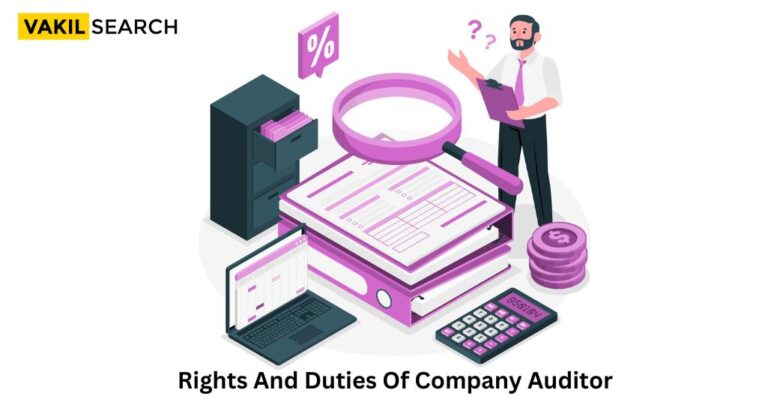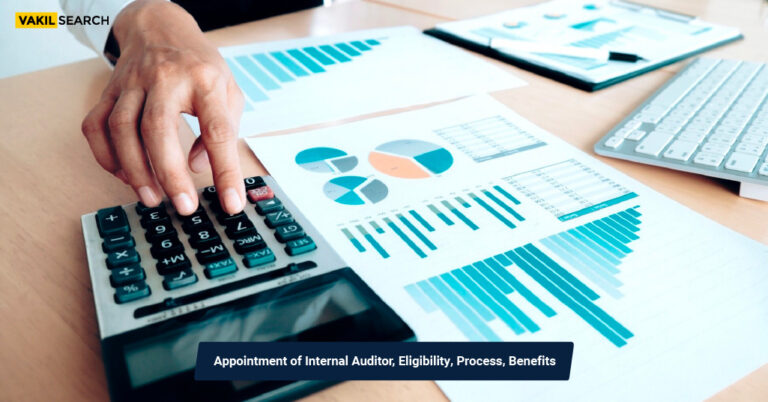To perform a cost audit, the company needs to appoint a cost auditor, and submit the audit report to the central government within a respective time frame. Read this blog to know how cost audits are performed with the help of legal experts in India.
Introduction
A cost audit examines the expense records of an organization as well as any relevant data, such as that from non-profits assuring interested parties—such as shareholders, management, and regulatory bodies—that the cost information disclosed by a company is correct and conforms with relevant laws and standards is the primary objective of this approach.
Cost audits apply to businesses that meet specific criteria, such as those concerning industry, turnover, or organizational structure. The Companies Act of 2013 mandates cost audits for several industries, including energy, communications, and medicines.
As part of the cost audit process, an unbiased auditor looks at the company’s financial statements, cost accounts, and other financial documents. Subsequently, the auditor produces an exhaustive report that pinpoints any mistakes in the business’s expense accounting system. Management can utilise this report to make informed decisions on cost control.
Meaning of Cost Audits
Cost audit refers to the auditing of cost records.
What Are Cost Records?
Cost records are books of the accounts associated with the use of labour, resources, and other items of cost that produce goods or provide services as mentioned in Section 148 of the Act and the Companies (Cost Records and Audit) Rules.
What Is a Cost Audit?
Hence, primarily, a cost audit involves a liberal assessment of a company’s cost accounting to assess its validity.
Cost audit mainly includes 2 key elements:
- Adherence: It means scrutinizing whether cost accounting records are as per cost Accounting Service procedures, principles, and objectives.
- Accuracy: To certify that the cost reports and statements produced based on cost accounting records are precise and valid.
What is the Applicability of Cost Audit?
Rule 4 of the Companies (Cost Records and Audit) Rules, 2014 contains the provisions for audit of cost applicability. As per rule 4, the cost audit is relevant in the following scenarios –
- Companies involved in the products or services described in Table A are accountable to Cost Audit during the immediately previous financial year if–
- Overall annual total turnover from all the products or services of the company is INR 50 Crore or more; and
- Total turnover from the individual product or service for which cost records are required is INR 25 Crore or more.
- Companies involved in the products or services described in Table B are accountable to Cost Audit during the immediately previous financial year if–
- The overall yearly total turnover of all the products or services is INR 100 Crore or more; and
- Total turnover from the individual product or service for which cost records are required is INR 35 Crore or more.
It should be considered that for the reason of assessment of the applicability of cost audit, the immediately previous financial year turnover is to be observed. If any company is included in a cost audit, it will have to appoint a practicing cost accountant as the cost editor and conduct the process for such an appointment, as shown before.
Non-Applicability of Cost Audit
The companies that are mentioned under rule 3 do not require their cost records to be audited in the case of the following scenarios –
- The companies’ export revenues exceed 75% of their aggregate revenue. The export revenues are needed to be in foreign exchanges; or
- The companies that are working from the special economic zones (SEZs);
- The companies that are engaged in the generation of electricity for confined consumption through Captive Generating Plant.
What Are the Objectives of Cost Audits?
- To guarantee that the financial statements are consistent, confirm the dependability and correctness of the cost accounting data
- Look for any cost accounting inefficiencies that affect the profitability of the business
- Verify that the company complies with all applicable cost accounting laws and rules
- Assist management in making informed decisions regarding financial planning and cost-control measures by providing data and insights
- Look for ways to save costs that will increase the profitability of the business
- The business’s profits will increase by identifying inefficiencies and putting remedies in place
- Reassure everyone concerned about the accuracy and dependability of the company’s cost accounting system, including shareholders, creditors, and regulatory agencies.
The Procedure of Cost Audit
Appointment of Cost Auditor
The company is required to have an Audit Committee, and a cost auditor has to be appointed by the Board of Directors of that committee. Each company that falls under Secretarial Audit Applicability should appoint a cost auditor within 180 days from the start of every financial year.
For the appointment, the auditor’s written consent should be obtained by the company’s Board of Directors. For example, the appointment of the cost auditor for FY 2022-23 should be concluded within 180 days from 1st April 2022, that is, before 27th September 2022.
Reporting to the Central Government
After the appointment of the cost auditor, the company shall report it to the Central Government by filing a notice.
The notice shall be sent within the following:
- The time of 30 days after the Board meeting in which the appointment is made
- Under the period of 180 days from the beginning of the financial year, whichever is earlier
The notice shall be sent via electronic mode, in form CRA-2, and the fee as mentioned in Companies (Registration Offices and Fees) Rules, 2014 (Refer Appendix-3).
Submitting the Audit Report
After the achievement of the audit, Cost Auditor has to submit the signed Cost Audit Report together with the observations in Form CRA-3 to the Company’s Board of Directors within a hundred and eighty days from the termination of the relevant financial year. After receiving the audit report through the Cost Auditor, within 30 days, the company’s Board of Directors has to deliver that Cost Audit report to the Central Government in Form CRA-4.
Applicability of Cost Records
There are two tables in Rule 3 of the Companies (Cost Records and Audit) Rules, 2014. They are:
- Table A – regulated sectors
- Table B – Non-regulated sectors.
The companies need to include cost records in their books of accounts that are involved in producing goods or providing services as covered under table A or Table B. Besides, and they also need to include the aggregate turnovers from all their productions or services of more than INR 35 crores during the previous financial year.
To put it briefly, cost records are compulsory in the case of the following scenarios.
- The company is involved in manufacturing goods or providing services that are listed in Table A or Table B; and
- The company’s total turnover from all its production or service in the previous financial year is more than ₹35 Crores.
Cost Audit Under the Companies Act of 2013
Some Indian enterprises are obligated to perform cost audits, depending on their turnover and other variables.
- The use of cost audits is governed by the Companies Act of 2013 and the Cost Accounting Records Rules of 2011
- Businesses that generated goods or services and made at least #50 crores in revenue in the previous fiscal year
- Businesses that manufacture certain products under the 2011 Cost Accounting Records Rules, regardless of their yearly revenue
- Among them there are medications and drugs; fertilisers; sugar; industrial alcohol; electricity; and many more
- On an individual basis, the Indian government may also alert select firms
- companies from abroad that manufacture goods and services in India. These businesses, regardless of turnover, must perform a cost audit.
Difficulties in the Cost Audit Process
There are several problems that companies can face with cost audits, including:
- It can be expensive and time-consuming to conduct a cost audit, especially for smaller companies with fewer resources
- Companies may lack the skills or resources required to finish a thorough cost audit, which could lead to incomplete or erroneous results
- Implementing the modifications the cost auditor suggests could be challenging due to employee resistance to change
- Inadequate record-keeping might result in inadequate or erroneous data and make it difficult to conduct a cost audit
- If the cost accounting system is imprecise or lacking, the cost audit might not accurately depict the company’s expenditures
- It could be challenging for businesses to abide by all applicable laws and rules when it comes to cost audits.
How to Ensure a Perfect Cost Audit?
- Choosing a qualified and seasoned cost auditor is the most crucial step. If you can locate a competent cost auditor, the auditing procedure should go without a hitch
- Businesses must ensure that the cost auditor obtains complete and reliable data, including information on all cost centres and allocation schemes
- Companies should conduct internal audits on a regular basis to identify possible issues with their cost accounting practices and address them before the cost auditor arrives
- Businesses should use quality control procedures to ensure the accuracy and dependability of their cost accounting data
- Businesses have to follow the most recent cost audit regulations in addition to all applicable laws and regulation
- Businesses must take action to fix any issues discovered during the cost audit, including implementing any recommendations made by the auditor.
Maintaining The Cost of Records
Every company which manufactures goods or provides services mentioned in Table A or Table B has to maintain the cost records according to sec 148(1) of the Companies Act, 2013 if its total turnover from all its products or services is ₹35 crores or more during the immediately previous financial year.
Why Maintain Cost Records?
Keeping cost records enables the maintenance of multiple costs and operations to achieve ideal economies in the use of resources. Besides, maintaining cost records allows easier calculation of the per-unit cost of operations, cost of sales and margin, or cost of production for each of its products or services regularly.
Which Form is Required?
Companies that fall under the rules of Companies (Cost Records & Audit) Rules, 2014 have to maintain the cost records in Form CRA-1.
Conclusion
To sum up, a cost audit refers to the liberal assessment of the cost accounting of a company to assess its validity. It applies to every company that produces goods or provides services stated in Table A and Table B of Rule 3 of the Companies (Cost Records and Audit) Rules, 2014. Lastly, in order to perform a cost audit, the company needs to appoint a cost auditor and submit the audit report to the central government within a respective time frame. For more information related to the audit, get in touch with the experts from Vakilsearch.
Frequently Asked Questions
What is a cost audit, and why is it important for businesses?
A cost audit is a critical examination of cost accounts and records. It is important for businesses as it helps in identifying areas of inefficiency and wastage.
What are the key objectives of conducting a cost audit?
The key objectives of conducting a cost audit are:
- To ensure the accuracy and reliability of cost accounting records
- To identify areas of inefficiency and wastage
- To improve cost control and management
- To enhance decision-making
Can you explain the basic steps involved in a cost audit process?
The basic steps involved in a cost audit process are:
What are the specific industries or sectors that typically require cost audits?
The specific industries or sectors that typically require cost audits are those involved in manufacturing, construction, mining and other industries where cost accounting is critical to business operations.
How does a cost audit differ from a financial audit?
A cost audit focuses on identification of areas of inefficiency and wastage, while a financial audit focuses on identification of financial irregularities and fraud.
What are the primary benefits of conducting a cost audit for a company?
The primary benefits of conducting a cost audit for a company are:
Are there any legal requirements or regulations governing cost audits?
Yes, there are legal requirements and regulations governing cost audits, such as the Companies (Cost Records and Audit) Rules, 2014, which mandate cost audits for certain companies.
Can you provide an overview of the documentation and records needed for a cost audit?
The documentation and records needed for a cost audit include cost accounting records, vouchers, invoices, bills of materials, production reports and other relevant documents.
What challenges do companies often face when conducting a cost audit, and how can they overcome them?
Companies often face challenges such as lack of expertise, resistance from employees and inadequate documentation when conducting a cost audit. They can overcome these challenges by hiring external experts, providing training to employees and improving documentation practices.
How frequently should a company perform a cost audit, and what factors influence the frequency?
The frequency of cost audits depends on factors such as the size of the company, the complexity of its operations and the regulatory requirements. Companies may perform cost audits annually, bi-annually or at any other intervals as required by law.
What is the rule 5 of cost audit?
Within 180 days of the end of the fiscal year to which the report pertains, each cost auditor is required to submit a duly signed report to the company's Board of Directors. The Board of Directors will then review and analyse the report, taking special note of any reservations or qualifications made in it.
What is rule 6 of cost audit?
Every company covered by these rules must provide the Central Government with the cost audit report, complete information, and an explanation of all reservations and qualifications included in it within thirty days of receiving a copy of the report. This must be done in form CRA-4 in Extensible Business Reporting Language format, following the instructions in the Companies (Filing of Documents and Forms in Extensible Business Reporting language) Rules, 2015, along with the fees outlined in the Companies (Registration Offices and Fees) Rules, 2014.
What is rule 7 of cost audit rules?
When a cost auditor performs his duties under Section 148 of the Act and these rules, the requirements of sub-section (12) of Section 143 of the Act and the applicable rules adopted thereunder shall apply mutatis mutandis.










